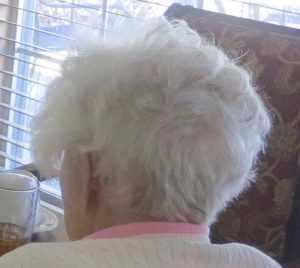KN, p. 215 “Fraud Squad: Save Grandma from Bankruptcy”
In “Grandma Bought a Half-Price Whatsit” we pointed out a few phone scams that sadly, have worked on many Senior citizens. How can we keep our Seniors safe from fraudsters? One solution is to cut down on the possible interactions with the bad guys. Here are a few easy lifestyle changes for Seniors and their honest caregivers.
- Be aware that you are at risk from everyone – family members challenged by money problems may take advantage of a Senior’s vulnerability. Choose the person to help with your money who doesn’t need it, because unfortunately, over 90% of all reported elder fraud is committed by the Senior’s own family members – including their adult children and grandchildren! There are many reports of emptied joint checking accounts, and outright theft.
- Stay involved!
Some Senior citizens withdraw from the larger community, but then have nobody to share their concerns with. Sheila’s mom did volunteer work at a local church and made great friends there. Four of them organized a daily check-in system. They made phone calls to chat and make sure each was okay.
- Tell people on the phone: “I never give money over the phone to a telemarketer. Send me something in writing.” Always wait until you receive that written material. Don’t donate to anyone who will only take credit cards.
- Don’t open the door to people you don’t know.
Get a peephole installed so that you can see who’s standing on the doorstep. If you don’t recognize the person out there, ignore the knocking. They’ll go away. If they don’t, call the police and DON’T open the door except to the Police Officer.
- Shred all receipts with your credit card number
Buy—and use—a paper shredder. Check your bank and credit card statements every month and never give out personal information over the phone unless you had called them first.
- Sign up for the “Do Not Call” list and take yourself off mailing lists.
Do not let mail sit in your mailbox for more than one day. When sending out bill payments, drop the envelopes off at the post office or consider setting up automatic bank withdrawal for the predictable monthly utility bills. If you are going out of town for a few days, have the Post Office hold your mail until you get back.
- Use direct deposit for benefit checks.
Using direct deposit allows checks to go right into your accounts, protecting them from thieves who steal right from the mailboxes or from your home if the checks are left lying around for nosy visitors to see. Never leave cash lying around.
- Never give your credit card, banking, Social Security, Medicare, or other personal information over the phone unless you are the one that called them first.
Misuse of Medicare is one of the largest scams involving seniors. One ploy is to sell unneeded equipment to the clients at nursing homes. Sheila’s Mom did a stint in an Assisted Living place for a few weeks after she broke a hip. One day, we walked in and saw a brand-new, $1,000. wheelchair sitting in her room. A chair that she did not need, and had not been authorized by Sheila or anyone at the place. The salesman had come directly to her room, told Mom that she was entitled to it because of her injury, and that Medicare would pay for it. Since the guy had come to her room, Mom thought the whole thing had been cleared by all of her lovely people. Not needing the chair in the first place, she was confused, but thought the doctor had suggested the chair. Nope.
Review your Medicare statements and report suspicious activities to 1-800-MEDICARE. We did, and they investigated. The residence made some changes in how the sales people contacted the residents. The wheelchair company was in big trouble.
- Be an informed consumer. Take the time to shop around before buying big ticket items.
Read all contracts and understand all your rights to cancel and get a refund if needed. Don’t let yourself be pressured into buying anything. Get an endorsement from somebody you know for any repair work needed around the house. Don’t hire anyone that just shows up on your doorstep without having been called by you first.
If you are a Senior Citizen and you think your credit cards or bank accounts have been compromised,
- Call your bank and/or credit card company.
- Cancel any debit or credit cards linked to the stolen account.
- Reset your personal identification number(s).
Every state operates an Adult Protective Services (APS) program. Anyone who suspects elder exploitation should make a report. Call them at 1-800-677-1116 weekdays. Additionally, the National Council on Aging is an excellent source of information in the USA for Senior Citizen programs.
*The Kerrians are a fictional family, but the wheelchair incident actually happened. Medicare fraud is a really big deal and reporting abuses to the system helps everyone.
*The savvy Senior in the photo is happily cared for by her loving, kind family.
KN, p. 215 “Fraud Squad: Save Grandma from Bankruptcy” Read More »

